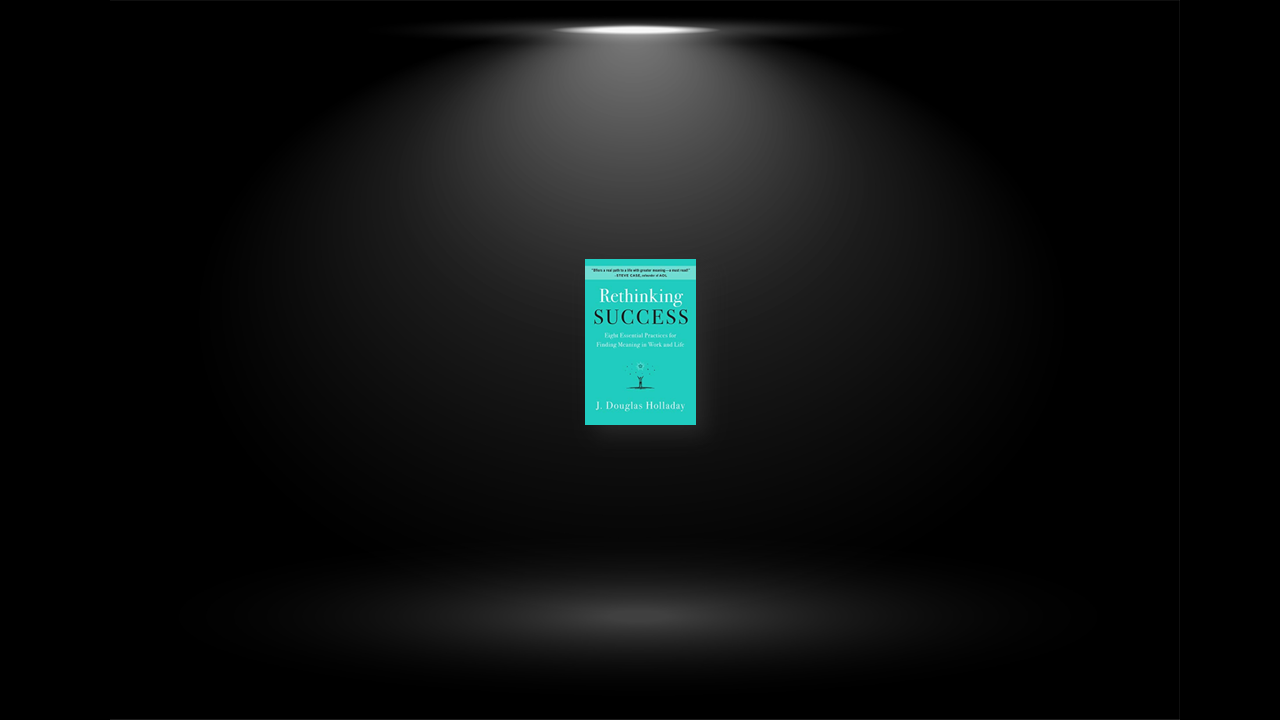Know Your Story
Our story is the central show in living a life of meaning and consequences. Not understanding the various dynamics that have shaped your unique narrative puts you at risk to live someone else’s story rather than your own.
We have all been profoundly shaped by the messaging of our culture as well as our early childhood influences concerning our notions of success, failure, gender roles, and various other life topics. We embrace most of these values and life patterns with little conscious thought or pushback. Although some of this imprinting is surely good, much of it is the source of pain later in life. Often it takes a crisis or an epiphany to prompt profound behavioral and attitudinal change. Change is hard.
Your story doesn’t just shape your habits, values, likes, and dislikes; it resonates on a far deeper level. If you’re constantly angry, impatient, and prone to rage, there’s a strong probability that you observed such behavior growing up. If you’re not a forgiver and possess a distrustful nature, you likely experienced that early on as well. Be curious about such things. Although these patterns are often unhelpful and even destructive, they are familiar and hence hold sway over our attitudes and actions. But it does not mean that we are stuck unable to make different decisions and fashion a different life.
Maintain Genuine Relationships
Success in business or other endeavors can exacerbate the problem. It has become a cliché to say, “It’s lonely at the top.” Yet the fact remains that success can actually put people at risk to become even more lonely and disconnected, particularly men. In a candid conversation about friendship at the 2017 Obama Foundation Summit, former first lady Michelle Obama said, “Women, we do it better than men. . . . Y’all should get you some friends. Get you some friends and talk to each other.” She added that she wanted her husband, former president Barack Obama, to enlarge his group of male friends. At one point, she said, “Y’all need to go talk to each other about your stuff, because there’s so much of it. It’s so messy.”
There are times when who we are is revealed for all to see whether we like it or not. It is not only humiliating, but tests the bonds of friendship. Although some friendships survive such a time, many do not. Simple friendship can seem a luxury for busy, success-obsessed people, but it should be a core value for anyone in search of greater meaning. We are created for relationship. It is oxygen for the soul. We must simply build it into our busy routines, time for those important to us. I’m not talking about superficial buddies. For a friendship to have true value, it must be genuine and deep, with an element of risk and vulnerability.
Make Gratitude a Regular Practice
Grateful people thrive because they pay attention to the right things. Paul Dolan observes, in Happiness by Design, that it is important to acknowledge the cause of your happiness. He notes, “The key to being happier is to pay more attention to what makes you happy and less attention to what does not. Notice this is not the same as paying attention to happiness itself.”
It’s important to note that happiness is only a by-product of something far more important. Our goal should be to have a life of meaning. I draw a distinction between happiness and meaning. Happiness is tied to circumstances and the externalities in our lives (getting a promotion at work, losing nineteen pounds, having a great weekend, etc.). Deep meaning is utterly profound and not necessarily dependent on any externalities. It is a sense of well-being that resides within and does not correlate with our shifting circumstances. Although deep within, it is also transcendent and spiritual in nature. This is why, in some of the darkest times, like serving a life sentence in jail or enduring a horrific war, certain people still manage to find a connection to meaning.
Learn to Forgive and Serve
Two important themes essential to thriving are forgiveness and care for others. We could explore both separately, devoting a chapter to each, but I have chosen to look at them together, since there are important synergies between the two. At the most basic level, if you are bitter and unwilling to forgive, you are not in a healthy position to focus on others’ concerns and needs. Instead, your gaze is inward; you are busy nursing and seeking to justify your anger and inner turmoil. Living a life of grievance like this, you are unable to care about or even notice the needs of those around you. All of us can find ample justification to cling to our private hurt and anger, envisioning settling the score or worse.
We do not forgive because others deserve it. We forgive because it is important for our souls. Forgiving frees us to get on with our lives and to experience a meaning derived from loving and caring for others. So selfless caring actually starts with forgiveness, both of others and of ourselves. UC–Davis scholar Robert Emmons observes: “You cannot be grateful and resentful at the same time, or forgiving and vengeful. It’s all connected.
Define Success and Failure for Yourself
Nothing strikes closer to the heart of what we truly value and believe than do our views of success and failure. They reveal it all!
Our task is to define success and failure for ourselves and so avoid unconsciously being driven by someone else’s definitions. So what is success? It can be difficult to get our minds around this elusive concept. Our thinking on this matter is deeply embedded in our subconscious mind, and at times it even surprises us. Many of us have a “number,” or amount of money, that seems to represent either security, success, or personal validation. It isn’t wrong to set a financial goal—but is it enough? What would success look like if we viewed it through a different lens, one that included other measures such as deepening friendships, reconciling with others, giving back, or learning to be better versions of ourselves through meditation and exercise?
Invite Risk into Your Life
Whether you have the risk gene or not, the value of good risk-taking is unmistakable. Research supports that some amount of discomfort is involved in attaining true happiness. Often we must do things that are initially uncomfortable and unfamiliar and yet later become associated with some of our finest moments. Psychologists Robert Biswas-Diener and Todd Kashdan note: “Truly happy people seem to have an intuitive grasp of the fact that sustained happiness is not just about doing things that you like. It also requires growth and adventuring beyond the boundaries of your comfort zone.
This doesn’t necessarily mean we must take a big ugly leap of some sort. We can develop a habit of risk-taking in small ways. We then taste the benefits and expand our scope of activity. Try a new restaurant. Have a conversation with someone you wouldn’t typically reach out to, like an old or estranged friend. Read a book outside of your usual genre. Meditate for ten minutes. Learn a language. Ask a monk about his “calling.” By starting small, you’ll start to see that risk, the unfamiliar, is your friend and teacher.
Success isn’t guaranteed if you take bold action. However, you won’t get anywhere if you aren’t willing to break away from comfortable routines and established norms, to be imaginative, and to venture something different.
Live an Integrated Life
People generally agree that a sense of purpose and meaning is good for the psyche. But did you know that having a purpose makes a real difference in our life expectancy, according to a study published in The Lancet? This finding is just one more indication that life is an integrated whole in which everything affects everything else, reinforcing the urgency to find true purpose.
Leaders today need to understand how interconnected everything is. In spite of the new emphasis upon STEM education (an interdisciplinary approach that includes science, technology, engineering, and math), we should never marginalize the humanities with their historical perspectives and moral lessons drawn from the best and worst of our past.
Wharton professor Stew Friedman tells us how leaders should think about their roles today: “Now more than ever leadership is not just about work, it’s about life. Success in the new world of business requires us to see leadership and life as pieces of the same puzzle.” He advocates “integrating work, home, community, and self—and improving performance in all these parts—by the powerful combination of increased authenticity (being real), integrity (being whole), and creativity (being innovative).”
Does everything fit in your worldview?
Leave a Legacy
Most of us tend to avoid any serious consideration of our legacy, partially because it inevitably leads to questions of mortality and death. David Barnard, professor of ethics at Oregon Health and Science University, has written extensively on the end of life. His findings reveal that “a major part of American society is very averse to thinking about dying.
And yet, at least with some, it seems that the tide has begun to turn. Death Cafes have been springing up all across America. Now in well over a hundred cities, these cafes are not for grief support or end-of-life planning, but rather for talking about the unmentionable, death, in casual settings. Jon Underwood, founder of the Death Cafe movement, notes, “There’s a growing recognition that the way we’ve outsourced death to the medical profession and to funeral directors hasn’t done us any favors.” He sees the Death Cafe as “a space where people can discuss death and find meaning and reflect on what’s important.”
In earlier times, death was always looming and ever present. Life was shorter, and few had either the time or the luxury to contemplate higher-order matters like their legacy. It was hard to escape the harsh reality of death, as seen in the writings of Kierkegaard and Socrates, among others. Accepting the reality of our demise, though, is different from thinking about the meaning of it all. Sitting down and talking about death, reflecting on it, will inevitably lead us to explore all sorts of issues, including our legacy. How will we be remembered?


